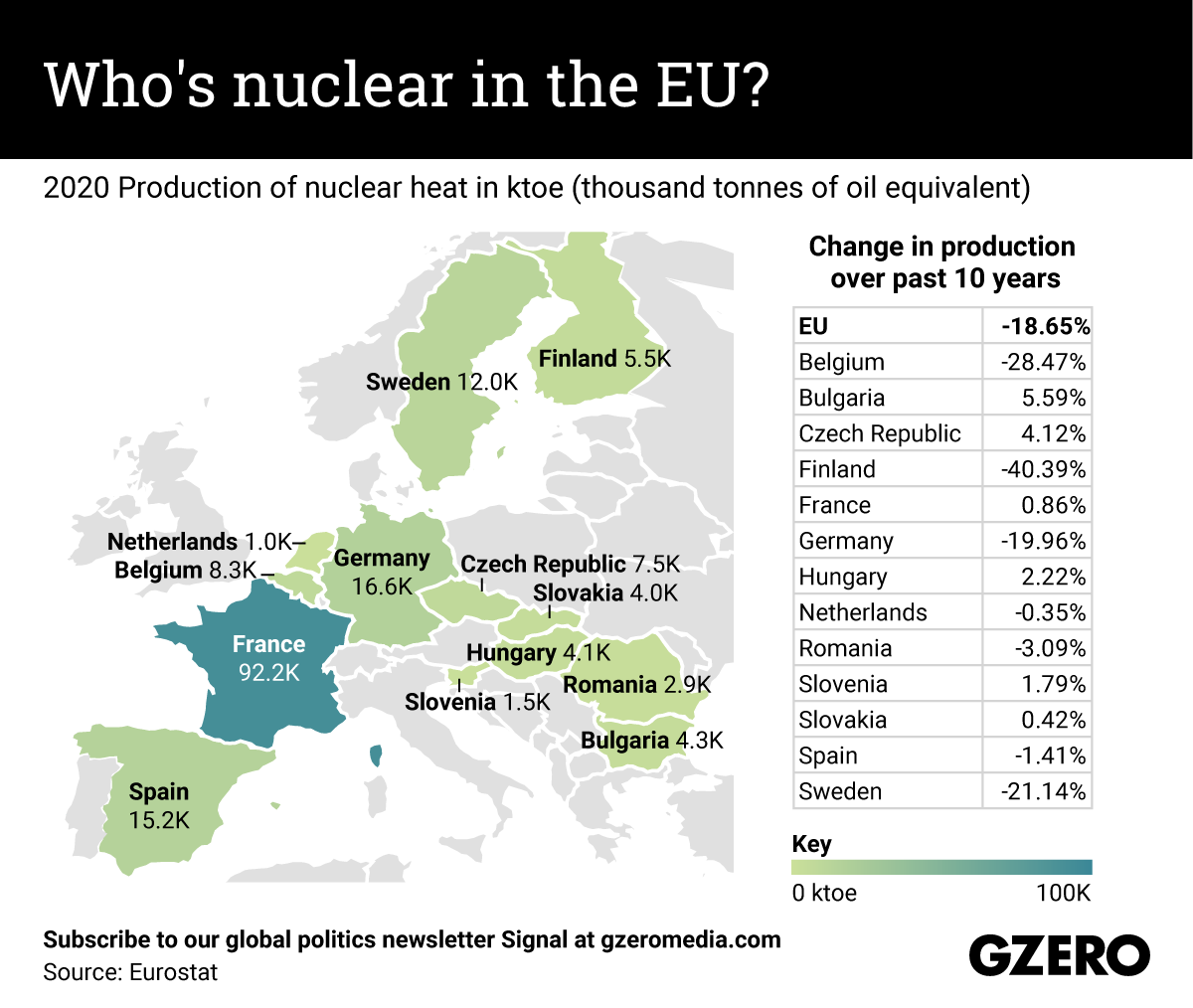When Russian troops shelled the Zaporizhzhia nuclear plant in southeastern Ukraine on Friday, many feared it could cause a Chernobyl-like catastrophe. But even before this event, the status of nuclear energy within Europe has been a massive point of contention. Since the Fukushima disaster in 2011, European Union states have bolstered their guidelines for nuclear power safety, but some have been trying to phase it out altogether. Last month, the European Commission outlined how nuclear energy could be labeled a “green” investment (presuming the plants can safely dispose radioactive waste). Critics labeled the move as “greenwashing,” and Austrian Chancellor Karl Nehammer tweeted that “Nuclear power is neither ‘green’ nor sustainable.” So how might this latest scare in Ukraine change Europe’s nuclear calculus, if at all? We take a look at which EU states produce the most nuclear heat, and how that’s changed since 2011.
More from GZERO Media
Eurasia Group and GZERO Media are seeking a highly creative, detail-oriented Graphic and Animation Designer who lives and breathes news, international affairs, and policy. The ideal candidate has demonstrated experience using visual storytelling—including data visualizations and short-form animations—to make complex geopolitical topics accessible, social-friendly, and engaging across platforms. You will join a dynamic team of researchers, editors, video producers, and writers to elevate our storytelling and thought leadership through innovative multimedia content.
While the Catholic world prepares for the funeral of Pope Francis on Saturday – the service begins at 10 a.m. local time, 4 a.m. ET – certain high-profile attendees may also have other things on their mind. Several world leaders will be on hand to pay their respects to the pontiff, but they could also find themselves involved in bilateral talks.
The Democratic Republic of the Congo and an alliance of militias led by the notorious M23 rebels announced a ceasefire on Thursday after talks in Qatar and, after three years of violence, said they would work toward a permanent truce.
Prime Minister Narendra Modi has blamed Pakistan for Tuesday’s deadly terrorist attack in Kashmir, and he’s takenaggressive action against its government.
Have you stayed atop GZERO’s news coverage this week? Here's your chance to prove it.
“When things are going fine, nobody really tests the skills and talents of their financial advisor, but this is a moment where really good advice can be extraordinarily powerful,” says Margaret Franklin, CFA Institute's CEO and President. In conversation with GZERO’s Tony Maciulis, Franklin describes the current financial climate as “maximum uncertainty,” rating it a 10 out of 10 on the risk scale.
On Wednesday, Donald Trump said he would deliver a “fair deal” with China and that he’d be “very nice” to the country after meeting with major retailers. But Beijing denies that there are any ongoing talks and has told the US it must cancel its unilateral tariffs before China will broker any negotiations.
Despite the two parties narrowing by a point in the polls since they released their platforms this past week, looking at the arc of the race overall, it appears that the Conservatives peaked too early and the Liberals have made an impressive resurgence.
